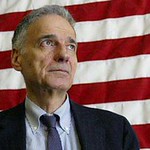Boston health officials are dealing with the immediate aftermath of two bombs that exploded near the finish line of the Boston Marathon on the afternoon of April 15, 2013. CDC offers resources that may help local or state health officials prepare for, respond to, and mitigate the health effects of bombings, and other mass casualty events.
Mass Casualty Event Preparedness and Response: CDC’s “Mass Casualty Event Preparedness and Response” website, available at http://emergency.cdc.gov/masscasualties/index.asp, is the primary location for resources for the general public and for health professionals. Public health officials can assist in disseminating the following resources to the audiences who need them.
Information for the General Public: The following resources on the “Mass Casualty Event Preparedness and Response” website offer information for the general public about bombings, and injuries and stress associated with mass casualty events:
- “Preparing for a Bombing: A Common Sense Approach,” available at http://emergency.cdc.gov/masscasualties/preparingterroristbombing.asp
- “After a Bombing: Health and Safety Information for the General Public,” available at http://emergency.cdc.gov/masscasualties/afterbombing.asp
- “Injuries and Mass Casualty Events,” available at http://emergency.cdc.gov/masscasualties/injuriespub.asp
- “Brain Injuries and Mass Casualty Events,” available at http://emergency.cdc.gov/masscasualties/braininjuriespub.asp
- “Coping With a Traumatic Event,” available at http://emergency.cdc.gov/masscasualties/copingpub.asp
Information for Health Professionals: The following resources on the “Mass Casualty Event Preparedness and Response” website offer information for health professionals about treating injuries and stress in patients affected by mass casualty events, as well as other resources for professionals:
Fact Sheets
- “Blast and Bombing Injuries,” available at http://emergency.cdc.gov/masscasualties/blastinjuryfacts.asp
- “Injuries and Mass Casualty Events,” available at http://emergency.cdc.gov/masscasualties/injuriespro.asp
- “After a Bombing: Health and Safety Information for Emergency Providers,” available at http://emergency.cdc.gov/masscasualties/afterbombing-ecp.asp
- “Brain Injuries and Mass Trauma Events,” available at http://emergency.cdc.gov/masscasualties/braininjuriespro.asp
- “Coping With a Traumatic Event,” available at http://emergency.cdc.gov/masscasualties/copingpro.asp
Guidance and Planning Documents
- “Interim Planning Guidance for Preparedness and Response to a Mass Casualty Event Resulting from Terrorist Use of Explosives,” available at http://emergency.cdc.gov/masscasualties/terrorist_explosives.asp
- “In a Moment’s Notice: Surge Capacity in Terrorist Bombings,” available at http://emergency.cdc.gov/masscasualties/surgecapacity.asp
- “Explosions and Blast Injuries: A Primer for Clinicians,” available at http://emergency.cdc.gov/masscasualties/explosions.asp
Data Collection and Planning Tools
- “Medical Record Abstraction Form for Domestic Bombing Events,” available at http://emergency.cdc.gov/masscasualties/bombingform.asp
- “Mental Health Survey Instrument,” available at http://emergency.cdc.gov/masscasualties/mhsurvey-instrument.asp
- “Mass Trauma Casualty Predictor,” available at http://emergency.cdc.gov/masscasualties/predictor.asp
- “Predicting Casualty Severity and Hospital Capacity,” available at http://emergency.cdc.gov/masscasualties/capacity.asp
Training
- “Blast Preparedness and Response Training and Continuing Education,” available at http://www.bt.cdc.gov/masscasualties/blast_training.asp
- “Bombings: Injury Patterns and Care,” available at http://www.bt.cdc.gov/masscasualties/bombings_injurycare.asp
- “Bombings: Injury Patterns and Care: Systems Preparedness” available at http://www.bt.cdc.gov/masscasualties/ppt/bombings_injury_patterns_and_care_systems_preparedness.ppt
Coping with Trauma: The effects of a disaster, terrorist attack, or other public health emergency can be long-lasting, and the resulting trauma can affect those not directly impacted by the disaster. CDC’s “Coping with a Disaster or Traumatic Event” web page, available at http://emergency.cdc.gov/mentalhealth/, lists resources that provide general strategies for promoting mental health and resilience. These materials were developed by various organizations on the basis of experiences in prior emergencies.
Substance Abuse and Mental Health Services Administration (SAMHSA) Disaster Distress Resources: The SAMHSA Disaster Distress Helpline, available at http://disasterdistress.samhsa.gov/, provides 24/7, year-round crisis counseling and support for persons experiencing signs of distress as a result of disaster:
- Call 1-800-985-5990
- Call TTY for deaf/hearing impaired 1-800-846-8517
- Text TalkWithUs to 66746
SAMHSA has additional resources on dealing with disaster at the SAMHSA website, http://disasterdistress.samhsa.gov/.
For More Information
- CDC’s “Mass Casualties: Related Links” web page, available at http://emergency.cdc.gov/masscasualties/resources.asp
- CDC’s “Public Health Resources: State Health Departments,” a state health department website locator, available at http://www.cdc.gov/mmwr/international/relres.html
- CDC’s National Center for Injury Prevention and Control website, “Injury and Violence Prevention Control,” available at http://www.cdc.gov/injury/
The Centers for Disease Control and Prevention (CDC) protects people’s health and safety by preventing and controlling diseases and injuries; enhances health decisions by providing credible information on critical health issues; and promotes healthy living through strong partnerships with local, national, and international organizations.






